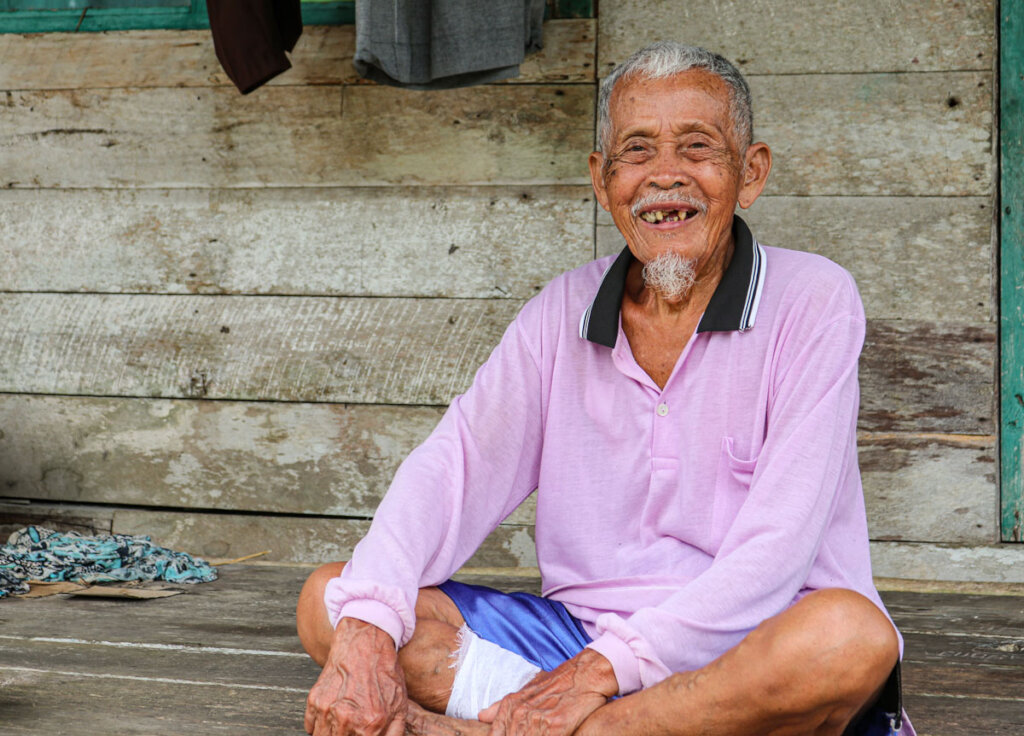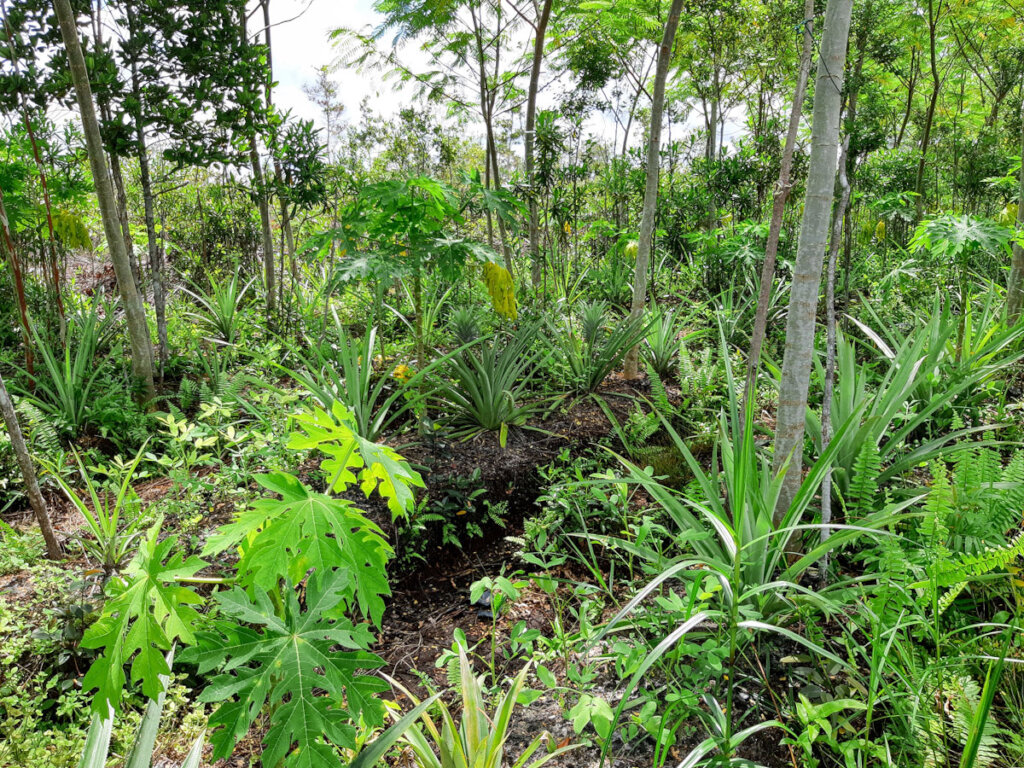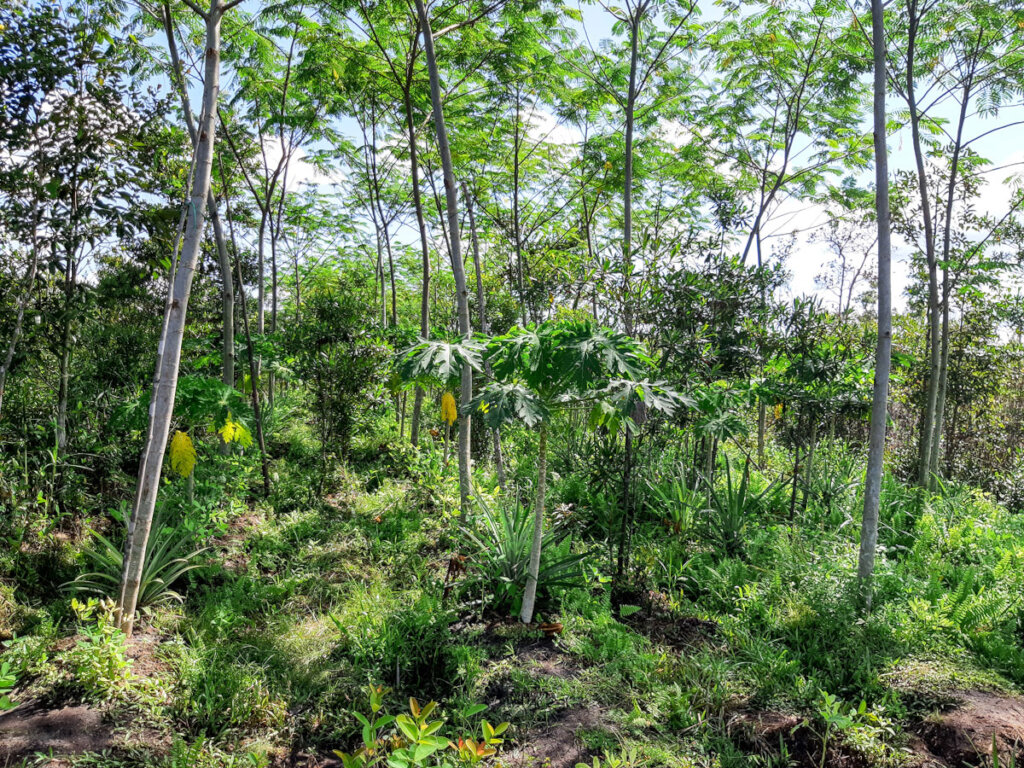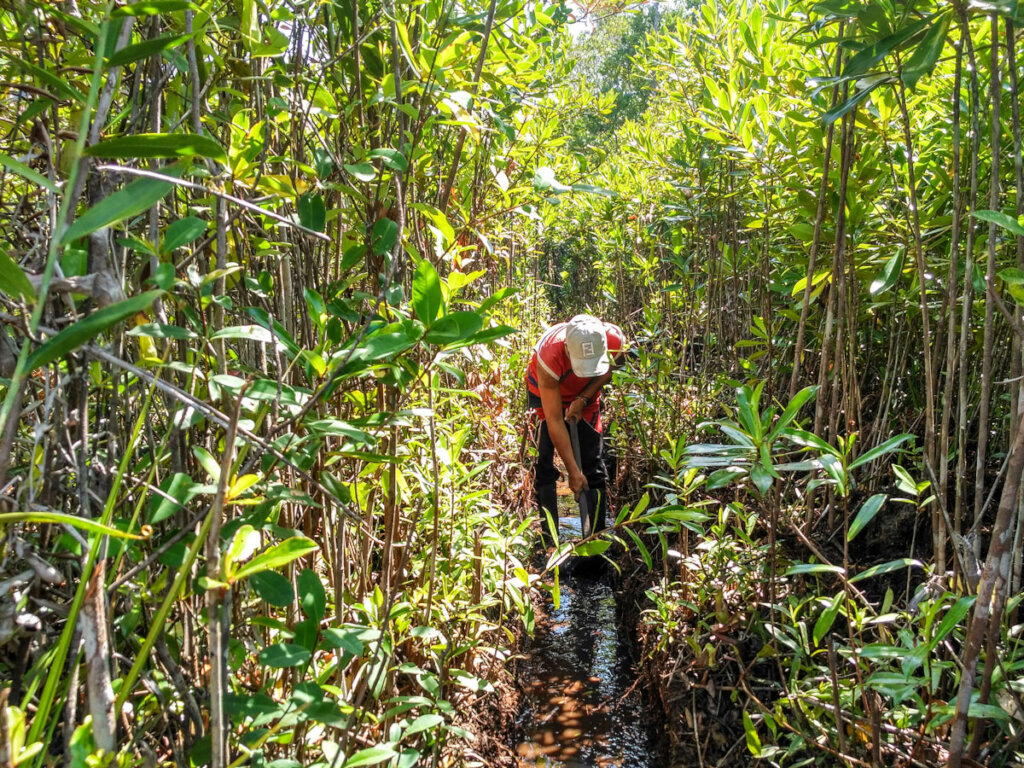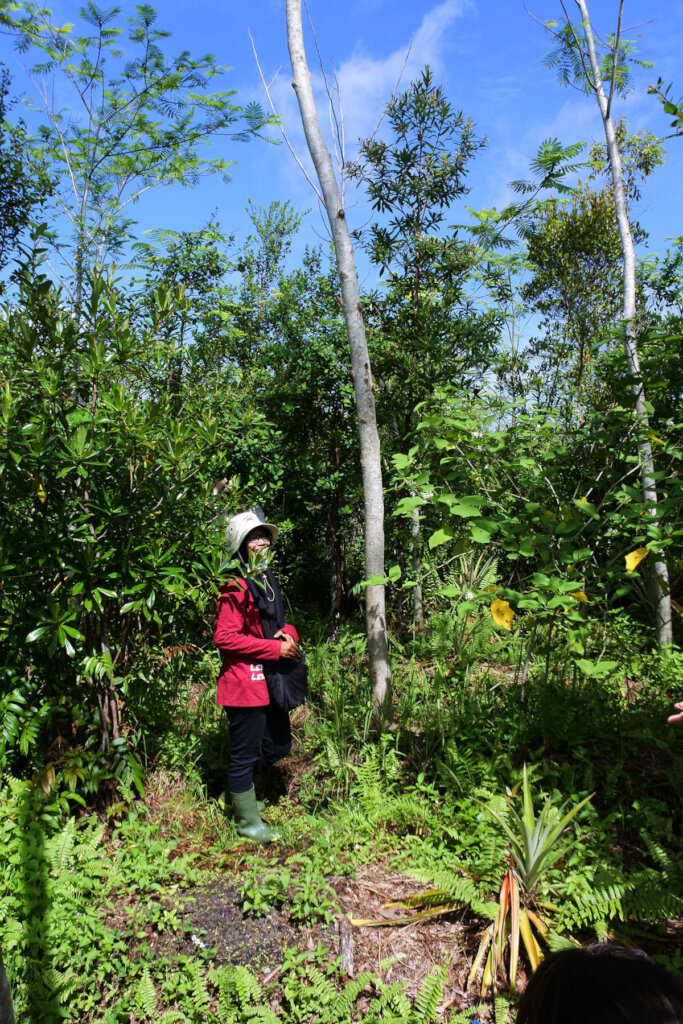By Uttama Pranaya | Fundraising & Communications
AD came to Bukit Batu in Central Kalimantan 27 years ago. Since his move there, AD has been growing vegetable crops and constantly struggles with monoculture farming.
"I grow a variety of vegetables, and in my 27 years, I have always faced the same difficulties: the land is wet and the soil is acidic sandy soil so the plants don't grow well. As a result, it requires high investment in fertilizers and pesticides. On top of that, the weather is now very erratic and ruins most of my harvest."
In Bukit Batu, the majority of farmers practice monoculture farming, a tradition deeply rooted in their agricultural habits. Monoculture, primarily associated with vegetable farming, was favored for its perceived ease of management, focused maintenance, and enhanced yields. However, this conventional approach has far-reaching implications for both the environment and farmers in the region.
While seemingly convenient, monoculture farming imposes a severe toll on the environment. With fewer plant varieties, the land becomes more susceptible to pests and diseases, causing farmers to rely on the excessive use of chemical pesticides for good harvest. The chemicals not only reduce the soil’s natural fertility, it also increases the cost of production and adversely affects the quality of the produce meant for human consumption.
In contrast, biodiversity is one of the essence of our agroforestry model plot. The increased plant diversity which also consists of trees with larger canopy results in a cooler temperature and helps in maintaining water reserves in the soil. This ensures that crops flourish while keeping the climate cooler, bringing benefits for the environment.
"The majority of farmers in the area of Bukit Batu only plant one crop on their land. In comparison, our pilot plot has such a diversity of plants. This makes our land so much cooler, greener, and beautiful. We can see the trees and plants are stronger than those in monoculture plots. During the first two years, we put considerable effort into the project, but now it is as if the plants no longer need support and are growing by themselves. You can see life itself happening!" describes YUM’s Agroforestry Coordinator.
This quote perfectly encapsulates the transformative journey of our agroforestry project – an ecosystem where life thrives independently. With a rich tapestry of plants, agroforestry promotes a balanced ecosystem, fostering fertile soil teeming with beneficial microorganisms.
Our practices help create an environment where the productive species can thrive alongside the native species while encouraging the natural regenerative process.
Thank you for helping us sow the seeds of sustainable agriculture to be shared to smallholder farmers in Bukit Batu. Your support is still needed; please consider transforming your one time donation into monthly giving, which would provide us with a more sustainable source of funds that we can use to plan our programs, create budgets, and expand our services. Thank you once again for your support and generosity!
Project reports on GlobalGiving are posted directly to globalgiving.org by Project Leaders as they are completed, generally every 3-4 months. To protect the integrity of these documents, GlobalGiving does not alter them; therefore you may find some language or formatting issues.
If you donate to this project or have donated to this project, you can receive an email when this project posts a report. You can also subscribe for reports without donating.
Support this important cause by creating a personalized fundraising page.
Start a Fundraiser